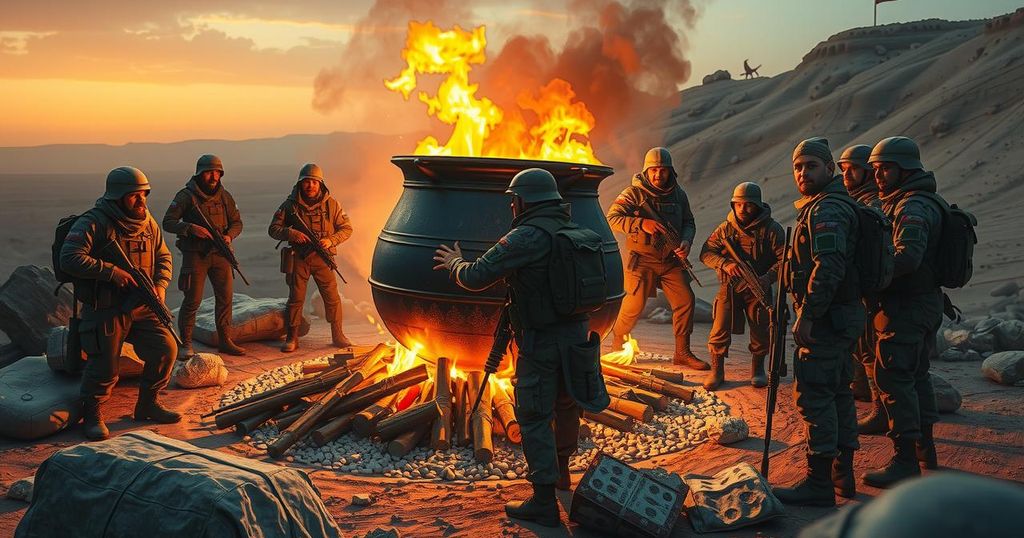Turkey’s New Efforts to Resolve Long-Standing Kurdish Conflict

- A group of 30 Kurdish fighters burned their weapons as a gesture to end the Kurdish conflict.
- Abdullah Ocalan, the PKK leader, appealed for disarmament as part of peace initiatives.
- The peace process has been influenced by political shifts in Turkey, especially by Devlet Bahceli.
- The PKK’s conflict with Turkey has resulted in tens of thousands of casualties over the years.
- Turkey’s current political landscape may influence future negotiations for Kurdish rights.
Recent Events Highlight Turkey’s Kurdish Conflict Resolution Efforts
In a significant move forward in Turkey’s quest to resolve its decades-long Kurdish conflict, 30 Kurdish fighters associated with the Kurdistan Workers’ Party (PKK) ceremoniously burned their weapons in northern Iraq. This momentous gesture, particularly as it included 15 women, marks a notable step towards ending one of the Middle East’s enduring insurgencies. Their actions come on the heels of a renewed peace initiative announced by the PKK’s jailed leader, Abdullah Ocalan, who emphasized the need for disarmament and disbandment in a recent video message.
Understanding the Kurdish Workers’ Party and Its Impact
The PKK has been at odds with the Turkish government since 1984, initially pushing for an independent Kurdish state before shifting towards more autonomy and rights for the Kurdish population. The conflict has torn through the region, claiming tens of thousands of lives and affecting not only Turkey but also neighboring nations like Iraq and Syria. Despite its designation as a terrorist organization by Turkey, the United States, and the European Union, the PKK continues to be a powerful force, with Ocalan’s influence seen throughout the Kurdish movement, even from his prison cell, where he has been held for over two decades.
Efforts at Negotiation Amid Tensions
The situation is evolving following remarks from Devlet Bahceli, an ultranationalist politician and ally of President Recep Tayyip Erdogan, who recently suggested Ocalan could be eligible for parole given an end to violence. This is a stark turnaround for Bahceli, who has historically advocated for military solutions rather than negotiation. Ocalan’s call for the PKK to disarm and disband this February led to a unilateral ceasefire and the announcement of disarmament, although uncertainties linger about potential gains for Kurdish groups and the risks of splinter factions forming as the PKK seeks to re-integrate into Turkey’s political landscape.
To sum it up, a group of Kurdish fighters has taken a proactive step to end the conflict that has marred Turkey for decades, marking a critical moment following Abdullah Ocalan’s call for peace. The evolving dynamics, spurred by Bahceli’s unexpected proposals, spotlight Turkey’s complex relationship with its Kurdish population. While historical challenges surround previous peace negotiations, the current atmosphere suggests a renewed trade-off might be on the horizon, propelled by regional stability concerns and internal political calculations for Erdogan’s government.






